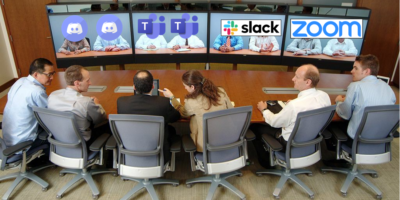March marks the arrival of National Engineering Month for Ontario and EWB is excited to have several events planned for the month. The main focus of NEM this year is changing the perception of engineering within society and how to create socially conscious global engineers.
EWB was founded on the principle that engineers could contribute more to society and that engineering skills could be applied to solve larger problems. Global engineering is the practice of seeking out and developing awareness and understanding of the greater consequences of design. The key attributes of global engineering include curiosity, empathy and responsibility.
Global engineering should not be considered a separate branch or division of engineering. The challenge is to transform the practice of engineering so that the concept of engineering is equated with the definition of global engineering. Doing this requires transforming engineering education so that engineers are taught to be globally conscious citizens who can use their skills to improve society, and changing the perception of engineering to show that engineers possess a unique set of skills and knowledge that can and should be utilized when trying to solve society’s biggest problems.
The need to transform engineering education comes with the recognition that our education currently focuses on teaching us skills such as calculus and coding and the ability to solve technical problems but there is no focus on using those skills to solve the greater problems faced by society. Waterloo has recently gotten a lot of positive attention for our innovative approach to education using the co-op system. And while co-op is an important factor in why many of us chose to study engineering at Waterloo it cannot replace the education that must take place within the classroom. We cannot continue to leave it up to co-op employers to teach us “soft skills” while engineering classrooms remain in a time warp. As is frequently pointed out, there is no correlation between how much engineering practice has changed in the last fifty years and how much engineering education has changed. If we want engineering to remain relevant in a rapidly changing society facing a unique set of twenty-first century problems we must adapt engineering education to enable us to solve those problems. EWB is working with faculty and staff at Waterloo to enhance engineering curriculum but we need student support. Engineering students need to decide if we want more from our education than six different courses that teach us how to apply mathematical formulas and theoretical problems.
Changing the perception of engineering is the first step to changing how we practice engineering in society. From the day prospective engineers arrive on the Waterloo campus, it’s instilled in us that only half of our education will actually take place on campus. The other half will take place during co-op applying engineering principles in the workplace. But what are we applying engineering principles to? If co-op is meant to be a representation of what we might do post-graduation then we should be exposed to as vast a variety of possibilities as possible. We should not allow co-op to limit the possibilities of what we can do with our education. Sure, we can work with other professional engineers and test programs, design bridges or write reports. And while this is a big part of what engineering is, it’s not all it can be. We need to realize the full potential of what engineering can accomplish.
Realizing the full potential of engineering is only half the equation in changing how engineering is practiced. The other half is in realizing the complacency of engineering in causing some of the challenges faced by society. If we as engineers are using our skills to work for defence contractors, extractive industries or other corporations that are profiting through unsustainable means of development then we are complicit in the harm that these practices cause. While it may be possible to work with these companies and improve their practices, we won’t accomplish anything by closing our eyes and blinding ourselves to the effects of their actions on society as a whole. We have to acknowledge that mineral extraction is a huge source of conflict in sub-Saharan Africa, that expansion of the oil sands in Alberta marginalizes First Nations communities and that defence contractors profit from war. And realizing the significant role that engineers plays in each of these industries is important if we want to change how engineering is practiced.
Global engineering principles realize the significant role engineers and the industries with which we associate have a huge impact on many of the issues faced by our society today. As the current engineering undergraduates at Waterloo represent a significant portion of the future engineers in Canada, we can have a huge influence on the future of engineering in Canada as well. We can refuse to accept the definition of engineering that has been handed to us and choose to redefine engineering and revolutionize the role that engineers serve in society.







Leave a Reply